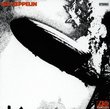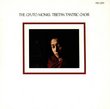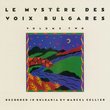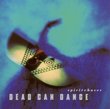| All Artists: Carlos de Seixas, Debora Halasz Title: Carlos de Seixas: Harpsichord Sonatas 1 Members Wishing: 0 Total Copies: 0 Label: Naxos Original Release Date: 1/1/2006 Re-Release Date: 4/18/2006 Genre: Classical Styles: Chamber Music, Forms & Genres, Sonatas, Historical Periods, Baroque (c.1600-1750), Classical (c.1770-1830) Number of Discs: 1 SwapaCD Credits: 1 UPC: 747313245925 |
Search - Carlos de Seixas, Debora Halasz :: Carlos de Seixas: Harpsichord Sonatas 1
 | Carlos de Seixas, Debora Halasz Carlos de Seixas: Harpsichord Sonatas 1 Genre: Classical
|
Larger Image |
CD DetailsSimilarly Requested CDs
|
CD ReviewsScarlatti, Soler, and ... Seixas Robin Friedman | Washington, D.C. United States | 07/06/2006 (5 out of 5 stars) "Carlos de Seixas (1704 -- 1742)was a Portuguese composer, much of whose work was destroyed by the Lisbon earthquake or otherwise neglected. There are also questions about the authenticity of some of the works attributed to this composer. Of the many keyboard sonatas de Seixas composed, about 100 survive. This CD offers the listener a welcome opportunity to sample the music of this neglected composer. Deborah Halasz, a young Brazilian harpsichordist and pianist, peforms a selection of 13 sonatas on the harpsichord. Her instrument is a modern replica of a 1734 harpsichord, and it has a clear, strong sound highly suitable to Seixas's music.
This is the first CD of a projected recording of Seixas's complete surviving keyboard sonatas on Naxos. It complements Naxos's ongoing projects of recording the keyboard sonatas of Scarlatti, on the piano by a variety of artists, and the keyboard sonatas of Padre Antonio Soler, performed on the harpsichord by Gilbert Rowland. Seixas composed binary style keyboard sonatas of the type immortalized by Domenico Scarlatti (1685 -- 1787). In fact the two composers knew each other, beginning in 1723 when Scarlatti moved to Lisbon. Seixas studied with Scarlatti for a time. Although they have a character of their own, Seixas's works are similar to the early works of Scarlatti. Scarlatti's sonatas deepened and developed to a great degree as he worked with the form over the years. Seixas's sonatas, as evidenced on this CD, are lively, virtuosic, highly rhythmic, and show a strong degree of originality. They tend to use heavy and repeated chords in the bass and have a rather straight-ahead quality. They lack the quirkiness and idiosyncracies for which Scarlatti is known. Unlike Scarlatti but like the later composer Padre Antonio Soler (1729 -- 1783) Seixas composed many multiple-movement sonatas. Soler's later multi-movement works are in the early classical galant style while Seixas's, composed earlier, remain firmly baroque. I found Seixas's works, particularly the multi-movement sonatas, to be short and somewhat fragmentary. His material does not get the expansion and development that Scarlatti gives to even his short works. The single-movement sonatas on this CD are highly virtuosic works with big chords, long runs, elaborate ornamentation, and difficult cross-hand passages. These works include the sonata no. 44 in F minor, the sonata no. 24 in D minor, and the sonata no.50 in G minor. Of the multi-movement works, I especially enjoyed the three- movement sonata no 57 in A major, with its large chordal opening movement, is surprisingly poignant slow movement, and its lively finale. For those who love the music of Scarlatti, it is delightful and instructive to place his music in a large context by listening to the music of a slightly later composer, Padre Soler, who studied with him, and a younger contemporary, Seixas. Neither of these composers are of the stature of Scarlatti, but both wrote beautifully for the harpsichord. Knowledge of the music of Seixas and Soler will increase one's appreciation of Scarlatti as well as of these composers in their own right. The music of Soler has been known for some time, but Seixas' music remains obscure. This exquisite collection should help to correct that situation. Robin Friedman" |

 Track Listings (27) - Disc #1
Track Listings (27) - Disc #1








